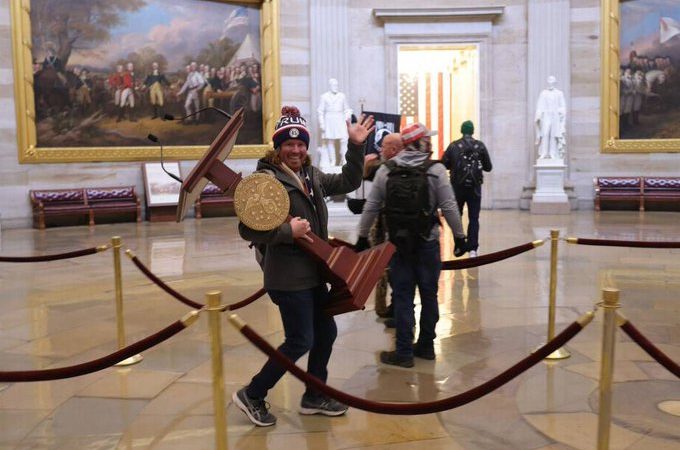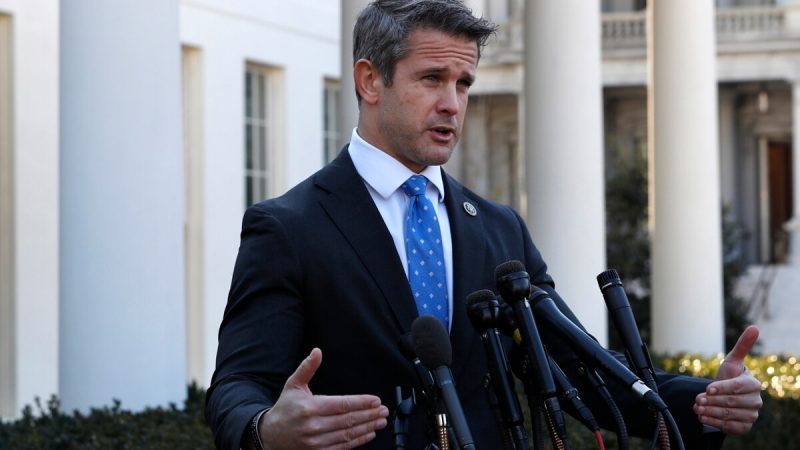Joshua Feuerstein’s #MerryChristmasStarbucks Is A Hit Sensation In The World Of Christian Outrage

Joshua Feuerstein’s performance art production of #MERRYCHRISTMASSTARBUCKS is a hit sensation in the world of Christian outrage, and his target is Starbucks’ secular coffee cups. It has quickly gone viral online, and the production is sparking a genuine protest movement of sorts.
The one-man scene is a committed performance, acted and directed by Feuerstein. While the performance plateaus early on at a high intensity, the script makes up for its lack of subtlety or emotional levels with trendsetting savvy in the medium of digital performance art.
The theme Feuerstein shares with the audience is that our Age of Political-Correctness has made us “so open-minded that our brains have literally fallen out of our head.” The hyperbole is an ill-advised trope, one that breaks the audience’s initial suspension of disbelief.
Our culture’s brainless decision that Feuerstein criticizes throughout the plot is that we are thoughtlessly enabling Starbucks coffee cups to celebrate the winter season without an explicit reference to Jesus.
“Do you realize that Starbucks wanted to take ‘Christ’ and ‘Christmas’ off of their brand new cups? That’s why they’re just plain red,” our protagonist explains.
But Feuerstein, through his character, has a plan to fight back against corporate multiculturalism.
“I decided instead of simply boycotting, well, why don’t we just start a movement. So when I went in and I asked for my coffee, they asked for my name and I told them my name is “Merry Christmas.’”
The protagonist prevails over his antagonist, caffeinated secularism, when he finds the loophole with which he can trick Starbucks employees into saying “Merry Christmas”. And he is proud.
“So guess what, Starbucks, I tricked you.. into putting ‘Merry Christmas’ ON your cup [emphasis his].” Success.
The script’s pacing may be rushed and brief, but the protagonist is a character who no doubt will be a ripe source for discussion. He may be perceived as valiant, he may come across foolish, but either way Feuerstein certainly will divide audiences as his theatrical efforts of bold persuasion resonate within our protagonist’s ego, instigating a turn toward radicalism with ideas of exclusionism.
“…I’m challenging all Great Americans and Christians around this great nation: go into Starbucks and take your own coffee selfie, and then I challenge you to not only share this video so the word gets out, but let’s start a movement and let’s call it, I don’t know, ‘#MERRYCHRISTMASSTARBUCKS’ and I know that by sharing this video and getting other Christians to do it, well, I guarantee you we can make this go around the world.”
The implication made obvious that Great Americans are Christian, and that other religious groups are subsequently not patriotic, seems hypocritical when contrasted with his call for Christian conduct. But no compelling character was ever written morally pure.
The character arc continues as he admits to being a social nuisance and an annoyance for Starbucks. However, his objective loses clarity, and the plot’s weakest moment comes as our protagonist meanders seemingly off-message.
“And Starbucks, guess what, just to offend you, I made sure to wear my Jesus Christ shirt into your store. And since you hate the Second Amendment, I even carried my gun.” Sure enough, he shows off his handgun. “Yikes,” he whispers.
Unfortunately, his shirt, with an image of Jesus and the term “colorblind” labeled over his eyes may have been a bad costuming choice, as it references the idea that Christians cannot see race. This Christian “colorblindness” philosophy has been criticized by some Christian publications as a “Jesus juke” to erase racial differences rather than affirming them, and as a “false illusion” that people can get along by ignoring race.
And by associating the War on Christmas with gun rights, Feuerstein needlessly promotes gun ownership from his Christian pulpit. Seems like unnecessary polarization, and he leads by example that Christians should not just politicize the act of buying coffee, but that they should open-carry weapons at the same time.
I have my doubts that Jesus would travel around modern-day Judea with a sidearm and a littered trail of coffee cup sermons, and the production loses its sense of theatrical verisimilitude because of it.
The conclusion comes swiftly with a call to arms, literally and figuratively, and the protagonist encourages the audience to combat social politeness.
“Choose to not be politically-correct, just correct.”
In terms of how this production fits into the Christian genre of absurdist theatre, Feuerstein is an effective pop artist latching successfully to the War on Christmas movement, and his narrative monologue resonates well while proving effective production by thriving within the Christian social media feed communities.
The found space stage of a Starbucks parking lot effectively communicates the context of the monologue, and serves as a strong visual reminder of what the scene has been produced to oppose.
However, I am afraid that the production is far too insular for success with secular artistic niches, and American mainstream culture is increasingly ambivalent about religious-inspired performance art.
Christians are losing their invented Us Vs. Them culture war with self-fulfilling fears of cultural irrelevance, and the War on Christmas is a self-conscious struggle. But so are all wars fought against the abstract enemy of apathy. Feuerstein and #MERRYCHRISTMASSTARBUCKS are proof that the artistic struggle against mainstream secularism has descended into cliché, and Christian resistance against perceived persecution is unexaminedly articulated with curious demands that everyone in society say “Merry Christmas” when a cup of coffee is purchased throughout the months of November and December.
Overall I would argue that audiences should view Feuerstein’s production of #MERRYCHRISTMASSTARBUCKS. Though it does not contribute much to artistic expression, it is a viral pop piece that is certain to remain controversial throughout this holiday season, and for the sake of cultural awareness I suppose one must view it.






